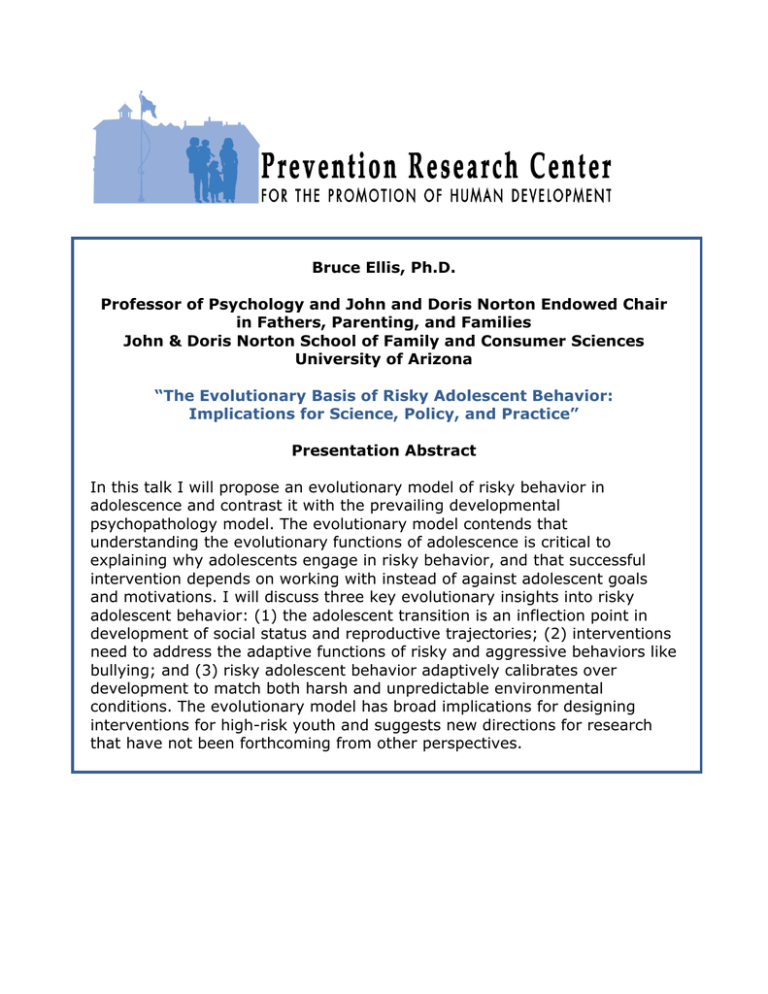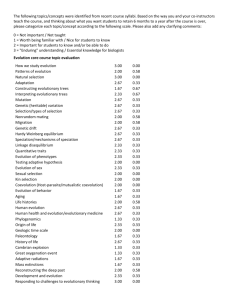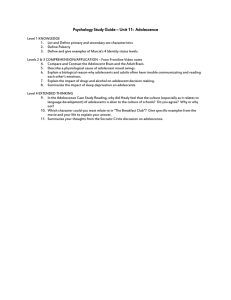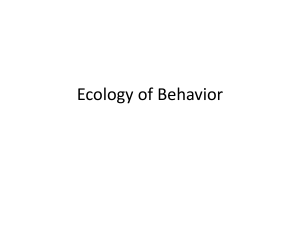Bruce Ellis, Ph.D. in Fathers, Parenting, and Families
advertisement

Bruce Ellis, Ph.D. Professor of Psychology and John and Doris Norton Endowed Chair in Fathers, Parenting, and Families John & Doris Norton School of Family and Consumer Sciences University of Arizona “The Evolutionary Basis of Risky Adolescent Behavior: Implications for Science, Policy, and Practice” Presentation Abstract In this talk I will propose an evolutionary model of risky behavior in adolescence and contrast it with the prevailing developmental psychopathology model. The evolutionary model contends that understanding the evolutionary functions of adolescence is critical to explaining why adolescents engage in risky behavior, and that successful intervention depends on working with instead of against adolescent goals and motivations. I will discuss three key evolutionary insights into risky adolescent behavior: (1) the adolescent transition is an inflection point in development of social status and reproductive trajectories; (2) interventions need to address the adaptive functions of risky and aggressive behaviors like bullying; and (3) risky adolescent behavior adaptively calibrates over development to match both harsh and unpredictable environmental conditions. The evolutionary model has broad implications for designing interventions for high-risk youth and suggests new directions for research that have not been forthcoming from other perspectives.






